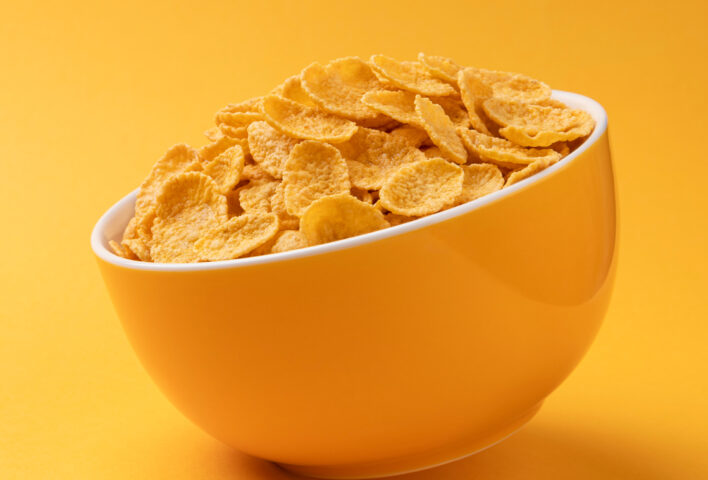Vitamin B12
Vitamin B12 is needed for healthy nerves, red blood cells and building DNA.

All about vitamin B12
What foods have vitamin b12?
Some good sources of vitamin B12 include:
- MILK
- CHEESE
- YOGURT
- EGGS
- YEAST EXTRACTS WITH ADDED B12
- BREAKFAST CEREALS WITH ADDED B12 (E.G. CORNFLAKES)
- SOYA MIL WITH ADDED B12
How much vitamin B12 do I need?
Average requirements are:
Women:
- 1.5μg per day
Men:
- 1.5μg per day
[μg = micrograms]
Vitamin B12 hints and tips
- Dairy can be a main vegetarian source of vitamin B12. If using dairy-alternatives look for ones with added vitamin B12
- Some health food products, such as seaweed and spirulina, stop the body taking in vitamin B12 effectively.
- Supplements can be an easy way to make sure you have enough vitamin B12.
More about vitamin B12
Vitamin B12 is a water-soluble vitamin playing an important role in cell metabolism. B12 consists of a small group of compounds called the cobalamins and is important for healthy blood and growth, child development, and also helps to keep the eyes, brain and nervous system functioning normally.
B12 is synthesised in nature by micro-organisms, and not by plants. Animal-derived foods are a primary source. For example, animals like sheep and cows produce B12 internally due to their intestinal bacteria (not present in humans), which goes into their milk.
Diets which exclude all animal products need to ensure that they obtain their recommended daily intake from fortified sources or supplements.
Functions
The primary functions of vitamin B12 are for:
- The formation of red blood cells
- Cell division
- Nerve structure and function
- The maintenance of normal blood homocysteine levels, together with folate and vitamin B6 (raised levels are a risk factor in cardiovascular disease).
The intrinsic factor is needed for the absorption of B12 in our bodies and is mainly secreted from gastric parietal cells. A lack of this can cause B12 deficiency. The deficiency of B12 is mostly due to inherited defects which result in malabsorption or the impaired transport of the vitamin within the body. A shortage of B12 can cause anaemia and neurological damage. B12 is also essential to the growth and development of a baby. The amount of B12 in the diet is of special concern for the elderly because deficiency occurs more frequently in older people. Disorders relating to B12 malabsorption are usually treated by repeat injections or oral supplementation.
Vitamin B12 can be stored in small amounts by the body, predominantly in the liver. The normal amount stored is 2-3mgs in adults, which is sufficient for 2 to 4 years. According to the British Nutrition Foundation, dietary deficiency is rare but it can sometimes occur in vegans who obtain virtually no B12 in their diet.
Dietary sources
The main foods which provide vitamin B12 are derived from animals, such as dairy products and eggs. For people not eating any animal products, yeast extract and other fortified/supplemented foods such as breakfast cereals, soya milks, soya/veggie burgers, and vegetable margarines are all good sources.
Fermented products such as tempeh and miso (obtained from fermented soya beans), shiitake mushrooms and algae (spirulina and nori) contain substances which are chemically similar to vitamin B12. However, they do not work in the body in the same way as the active vitamin, so these foods cannot be relied upon as sources of vitamin B12.
Babies will get all the vitamin B12 they need from breast or formula milk. Later, vegetarian babies should obtain enough B12 from dairy products and eggs. However, it is particularly important to ensure that vegan babies get vitamin B12 from clearly labelled fortified products such as soya formula (seek advice from a health professional prior to feeding), low-salt yeast extract and breakfast cereals.
/
